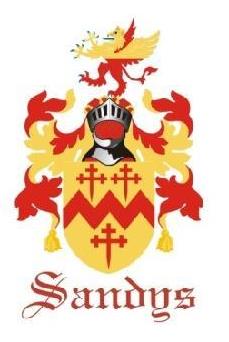



Sandys Parish Council
The
Parish Council was established in 1963. Previously the
Parishes were administered by the Parish Vestries. While members of
the Vestry were elected, Parish Council members are appointed
annually by the Bermuda Government. Members of the Councils must be
residents of the Parish in which they serve.
The Parish Councils are governed by the Parish Council Act 1971. The Parish Councils
fall under the Ministry of Public Works.
History of Sandys Parish
Sandys Parish is the
westernmost of all nine Parishes each of the same size, 2.3055
square miles. It includes Somerset Island (named after the English
county of Somerset, just as are Somerset in New Jersey,
Massachusetts and other places with Somerset in their name).
It also includes Boaz Island, Ireland Island and Watford Island.
The islands that make up the Parish are connected by bridges and
serviced by buses and ferries.
The Parish was named in honor of one of Bermuda's
Elizabethan patrons, English aristocrat Sir Edwin Sandys
(1561-1629). He was the second son of the Archbishop of the city of
York in England. He was a Member of Parliament for Andover in 1586
and accompanied King James on his triumphal progress through
England when he ascended the throne on the death of Queen
Elizabeth. Sandys was knighted the same year but his royal favor
was withdrawn when it was noted he had nonconformist sympathies. He
was a member of the Council for Virginia in 1607 and was personally
responsible for the emigration of many families. He was also
suspected of encouraging republicanism in those places. He joined
the Bermuda Company in 1615 as one of the Gentlemen Adventurers who
invested to colonize Bermuda. He was the largest shareholder in
Sandys Tribe, later Sandys Parish. In 1621 he was imprisoned,
nominally for hiding the truth on the appalling conditions in
Virginia for colonists at that time, but probably for his
Parliamentary speeches that did not please the King. He was
released after a few weeks but died in 1629.
Primarily as a result of the
construction of the Royal Naval Dockyard which was started by
convicts later replaced by West Indian and British workers,
Somerset or Sandys became a very different place from the rest of
Bermuda. Its population had no deep roots in Bermuda’s past. It is
one of the three parishes that do not have a parish
motto.
Today, Sandys is a diverse community once again
looking toward the dockyard area for promising revitalization of
its economy.